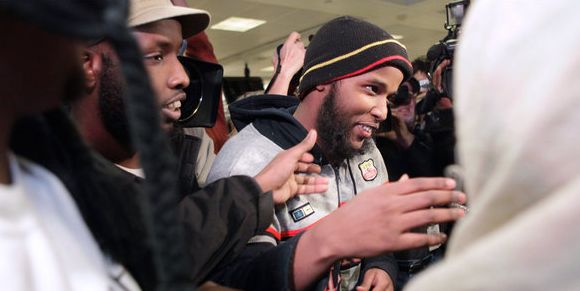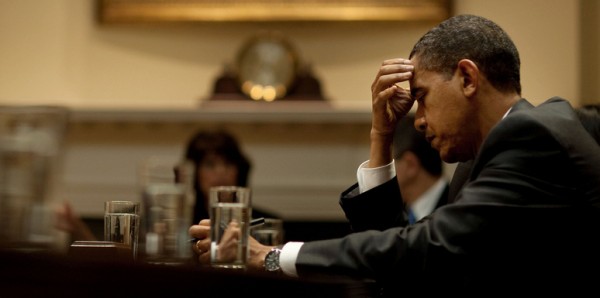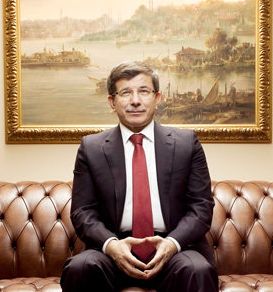
Introducing the Palestine Papers:
Over the last several months, Al Jazeera has been given unhindered access to the largest-ever leak of confidential documents related to the Israeli-Palestinian conflict. There are nearly 1,700 files, thousands of pages of diplomatic correspondence detailing the inner workings of the Israeli-Palestinian peace process. These documents – memos, e-mails, maps, minutes from private meetings, accounts of high level exchanges, strategy papers and even power point presentations – date from 1999 to 2010.
The material is voluminous and detailed; it provides an unprecedented look inside the continuing negotiations involving high-level American, Israeli, and Palestinian Authority officials.
Al Jazeera will release the documents between January 23-26th, 2011. They will reveal new details about:
- the Palestinian Authority’s willingness to concede illegal Israeli settlements in East Jerusalem, and to be “creative” about the status of the Haram al-Sharif/Temple Mount;
- the compromises the Palestinian Authority was prepared to make on refugees and the right of return;
- details of the PA’s security cooperation with Israel;
- and private exchanges between Palestinian and American negotiators in late 2009, when the Goldstone Report was being discussed at the United Nations.
In The Guardian, Seumas Milne and Ian Black write:
The overall impression that emerges from the documents, which stretch from 1999 to 2010, is of the weakness and growing desperation of PA leaders as failure to reach agreement or even halt all settlement temporarily undermines their credibility in relation to their Hamas rivals; the papers also reveal the unyielding confidence of Israeli negotiators and the often dismissive attitude of US politicians towards Palestinian representatives.
Last night Erekat said the minutes of the meetings were “a bunch of lies and half truths”. Qureia told AP that “many parts of the documents were fabricated, as part of the incitement against the … Palestinian leadership”.
However Palestinian former negotiator, Diana Buttu, called on [chief Palestinian negotiator, Saeb] Erekat to resign following the revelations. “Saeb must step down and if he doesn’t it will only serve to show just how out of touch and unrepresentative the negotiators are,” she said.
In an article on the origin of the documents, The Guardian reported:
The bulk of the documents are records, contemporaneous notes and sections of verbatim transcripts of meetings drawn up by officials of the Palestinian negotiation support unit (NSU), which has been the main technical and legal backup for the Palestinian side in the negotiations.
The unit has been heavily funded by the British government. Other documents originate from inside the PA’s extensive US- and British-sponsored security apparatus.
The Israelis, Americans and others kept their own records, which may differ in their accounts of the same meetings. But the Palestinian documents were made and held confidentially, rather than for overt or public use, and significantly reveal large gaps between the private and stated positions of Palestinian and, in fewer cases, Israeli leaders.
The documents – almost all of which are in English, which was the language used by both sides in negotiations – were leaked over a period of months from several sources to Al Jazeera. The bulk of them have been independently authenticated for The Guardian by former participants in the talks and by diplomatic and intelligence sources.
The NSU – formally part of the Palestine Liberation Organisation (PLO) – is based in the West Bank town of Ramallah under the chief Palestinian negotiator, Saeb Erekat. It has drawn heavily on the expertise of Palestinian-American and other western-trained diaspora Palestinian lawyers for technical support in negotiations.
Al Jazeera has made the complete searchable database of the documents available on its new Transparency Unit site.
Karma Nabulsi writes:
It’s over. Given the shocking nature, extent and detail of these ghastly revelations from behind the closed doors of the Middle East peace process, the seemingly endless and ugly game is now, finally, over. Not one of the villains on the Palestinian side can survive it. With any luck the sheer horror of this account of how the US and Britain covertly facilitated and even implemented Israeli military expansion – while creating an oligarchy to manage it – might overcome the entrenched interests and venality that have kept the peace process going. A small group of men who have polluted the Palestinian public sphere with their private activities are now exposed.
For us Palestinians, these detailed accounts of the secretly negotiated surrender of every one of our core rights under international law (of return for millions of Palestinian refugees, on annexing Arab Jerusalem, on settlements) are not a surprise. It is something that we all knew – in spite of official protests to the contrary – because we feel their destructive effects every day. The same is true of the outrageous role of the US and Britain in creating a security bantustan, and the ruin of our civic and political space. We already knew, because we feel its fatal effects.
For the overwhelming majority of Palestinians, official Palestinian policy over these past decades has been the antithesis of a legitimate, or representative, or even coherent strategy to obtain our long-denied freedom. But this sober appreciation of our current state of affairs, accompanied by the mass protests and civil society campaigns by Palestinian citizens, has been insufficient, until now, to rid us of it.
The release into the public domain of these documents is such a landmark because it destroys the final traces of credibility of the peace process. Everything to do with it relied upon a single axiom: that each new initiative or set of negotiations with the Israelis, every policy or programme (even the creation of undemocratic institutions under military occupation), could be presented as carried out in good faith under harsh conditions: necessary for peace, and in the service of our national cause. Officials from all sides played a double game vis-à-vis the Palestinians. It is now on record that they have betrayed, lied and cheated us of basic rights, while simultaneously claiming they deserved the trust of the Palestinian people. [Continue reading…]



 In the fall of 2009, relations between Serbia and Bosnia — never easy since the savage civil war of the 1990s — were slipping toward outright hostility. Western mediation efforts had failed. Ahmet Davutoglu, the foreign minister of Turkey, offered to step in. It was a complicated role for Turkey, not least because Bosnia is, like Turkey, a predominantly Muslim country and Serbia is an Orthodox Christian nation with which Turkey had long been at odds. But Davutoglu had shaped Turkey’s ambitious foreign policy according to a principle he called “zero problems toward neighbors.” Neither Serbia nor Bosnia actually shares a border with Turkey. Davutoglu, however, defined his neighborhood expansively, as the vast space of former Ottoman dominion. “In six months,” Davutoglu told me in one of a series of conversations this past fall, “I visited Belgrade five times, Sarajevo maybe seven times.” He helped negotiate names of acceptable diplomats and the language of a Serbian apology for the atrocities in Srebrenica. Bosnia agreed, finally, to name an ambassador to Serbia. To seal the deal, as Davutoglu tells the tale, he met late one night at the Sarajevo airport with the Bosnian leader Haris Silajdzic. The Bosnian smoked furiously. Davutoglu, a pious Muslim, doesn’t smoke — but he made an exception: “I smoked; he smoked.” Silajdzic accepted the Serbian apology. Crisis averted. Davutoglu calls this diplomatic style “smoking like a Bosnian.”
In the fall of 2009, relations between Serbia and Bosnia — never easy since the savage civil war of the 1990s — were slipping toward outright hostility. Western mediation efforts had failed. Ahmet Davutoglu, the foreign minister of Turkey, offered to step in. It was a complicated role for Turkey, not least because Bosnia is, like Turkey, a predominantly Muslim country and Serbia is an Orthodox Christian nation with which Turkey had long been at odds. But Davutoglu had shaped Turkey’s ambitious foreign policy according to a principle he called “zero problems toward neighbors.” Neither Serbia nor Bosnia actually shares a border with Turkey. Davutoglu, however, defined his neighborhood expansively, as the vast space of former Ottoman dominion. “In six months,” Davutoglu told me in one of a series of conversations this past fall, “I visited Belgrade five times, Sarajevo maybe seven times.” He helped negotiate names of acceptable diplomats and the language of a Serbian apology for the atrocities in Srebrenica. Bosnia agreed, finally, to name an ambassador to Serbia. To seal the deal, as Davutoglu tells the tale, he met late one night at the Sarajevo airport with the Bosnian leader Haris Silajdzic. The Bosnian smoked furiously. Davutoglu, a pious Muslim, doesn’t smoke — but he made an exception: “I smoked; he smoked.” Silajdzic accepted the Serbian apology. Crisis averted. Davutoglu calls this diplomatic style “smoking like a Bosnian.”